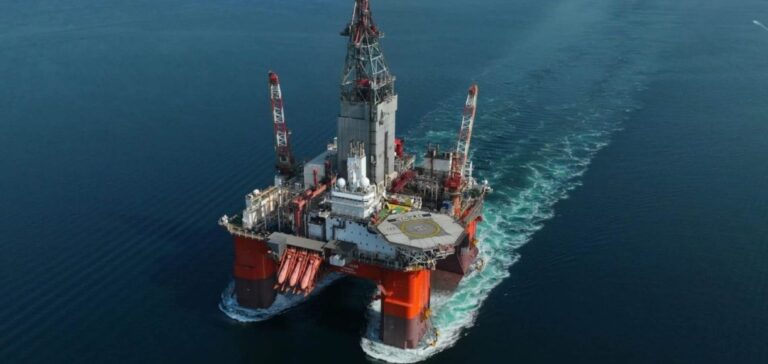On February 25, 2025, Custos Energy reported significant progress at the Mopane oil field, located in blocks 2813A and 2814B offshore Namibia. These discoveries result from a new exploration campaign launched in early January by Galp, the operator of the PEL83 licence. During the drilling of the Mopane-3X well, targets AVO-10 and AVO-13 showed significant traces of hydrocarbons. While exact volumes have not been disclosed, these results strengthen the outlook for substantial production potential.
These discoveries are part of a series of successes for Galp at the Mopane site. In 2024, the company had already identified hydrocarbons in targets AVO-1, AVO-2, and AVO-3 during the exploration of several other wells, such as Mopane 1X and Mopane 2X. These efforts are crucial for assessing the commercial viability of the field, which could hold up to 10bn barrels of oil equivalent, according to Galp’s estimates.
The growing optimism surrounding Mopane aligns with Namibia’s national strategy to become an oil producer by 2029. However, the country faces challenges in achieving this goal. In January, Shell announced a $400m write-down on its assets in the PEL 39 licence, and TotalEnergies postponed its final investment decision for the development of block 2913B until 2026, another key area. These adjustments highlight the risks associated with the development of offshore oil resources in Namibia.
Challenges of oil exploitation in Namibia
Namibia, which has untapped oil resource potential, still faces several steps before transitioning from exploration to production. While the country is actively seeking to diversify its revenue sources by exploiting its offshore reserves, fluctuations in oil prices and technical challenges related to deepwater extraction could influence the long-term profitability of projects. The accumulation of positive discoveries at the Mopane field represents a key factor of confidence for investors but is still insufficient on its own to guarantee a stable oil future.
Increasing competition in the offshore oil market
While the advancements at Mopane are promising, Namibia finds itself in a competitive environment, where other major players in the oil sector are ramping up projects in offshore waters. Strategic adjustments made by companies such as Shell and TotalEnergies show the risks of an oversupply of investments and tensions in assessing the profitability of offshore resources. Nevertheless, further discoveries like those at Mopane could enhance Namibia’s attractiveness in the international energy market, particularly as part of the ambition to produce oil by 2029.






















